Whether it’s a cute and practical Nissan or a spacious luxury Lexus, Japan (日本, Nihon/Nippon) has plenty to offer when it comes to buying a car (車, kuruma). Driving a car (運転, unten) also provides more freedom, especially if you want to explore some of the beautiful locations outside of Japan’s big cities.
That said, getting your hands on a new set of wheels as a newcomer to the country can be a little tricky. So to help you get on the road, this article outlines everything you need to know, including:
- Buying a car in Japan
- Who can buy a car in Japan?
- Buying a new Japanese car
- Where in Japan to buy a new car
- Electric cars and hybrids in Japan
- Buying a used car in Japan
- Car registration and other paperwork in Japan
- Importing a car into Japan
- Selling a car in Japan
- Equipment your car needs to have in Japan
- Useful resources
Buying a car in Japan
According to Japan’s Automobile Inspection & Registration Information Association (自動車検査登録情報協会/自検協, Jidosha Kensa-Toroku Joho Kyokai/Jikenkyo), there was just over one car per household (PDF in Japanese) in Japan in 2022.
Given that major cities like Tokyo (東京) and Osaka (大阪) are so well-connected by public transport, it’s not that common to own a car there, especially if you are an expat or temporary resident.
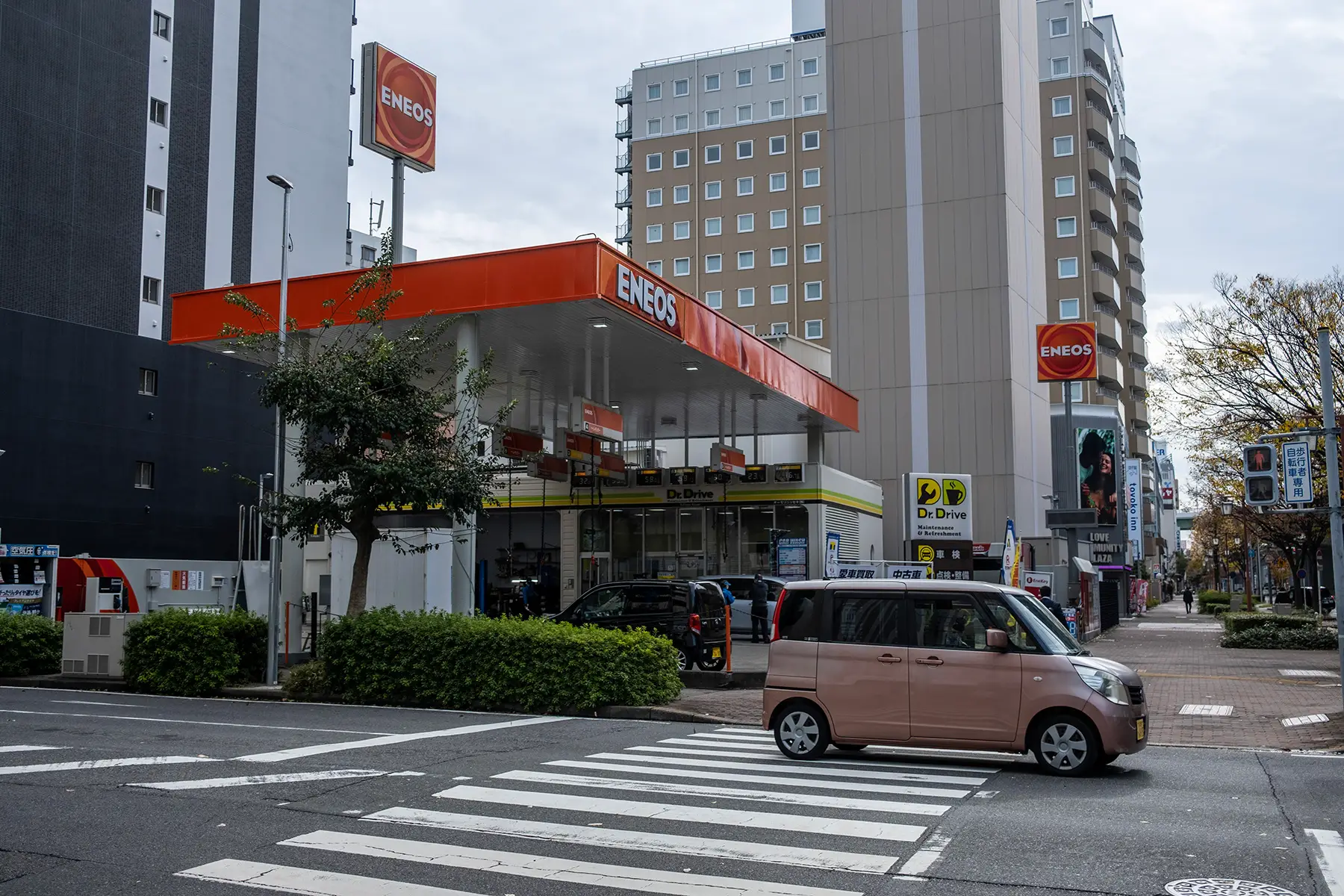
However, for those living in the suburbs and commuting to work, buying a car is almost essential. In fact, depending on the area, it may be difficult to even shop for groceries without one, not to mention getting to work or school.
Fortunately, those looking to buy a Japanese-made car won’t be short of options. According to the International Organization of Motor Vehicle Manufacturers (OICA), the country produced the third-largest number of cars in the world in 2022. Only China and the United States made more. Some of the most well-known brands are Nissan (日産), Honda (ホンダ), Subaru (スバル), Toyota (トヨタ), Lexus (レクサス), and Mazda (マツダ).
Buying a car in Japan requires ticking a lot of boxes. But when it comes to choosing your vehicle and where to get it, as with any big purchase, do your research and take your time to find the right car for you. Taking these measures will help you to avoid succumbing to quick-fire sales tactics.
Who can buy a car in Japan?
The most basic requirements to buy a car in Japan are that you must be a permanent resident (永住者, eiju sha) (i.e., not on a tourist visa) and have a valid Japanese driving license (運転免許証, unten menkyo sho). You must also be over the legal driving age (18).
Depending on where your existing license is from, you may be able to do a simple license conversion that does not require you to pass a driving test (運転免許試験, unten menkyo shiken) in Japan.
For the conversion, you will also need a translation of your existing license from the Japan Automobile Federation (JAF) (日本自動車連盟, Nihon Jidosha Renmei/Jafu). However, for other countries, the conversion process pretty much involves getting a new one from scratch.
Make sure to check which category you fall into before setting off to buy a car. The Tokyo Metropolitan Police Department (警視庁, Keishi Cho) has some useful information in English.
Buying a new Japanese car
As with any country, there are advantages and disadvantages to buying a brand-new car in Japan. When purchasing directly from the manufacturer, not only do you get great customer service, but you’ll also enjoy certain benefits once you have the keys (鍵, kagi). This can range from financing and leasing deals to 24/7 support if something goes wrong.
However, if you buy a used car from a reputable dealer, you might enjoy some of these advantages for a lower price. Whether you opt for a new or used vehicle entirely depends on your needs and priorities.
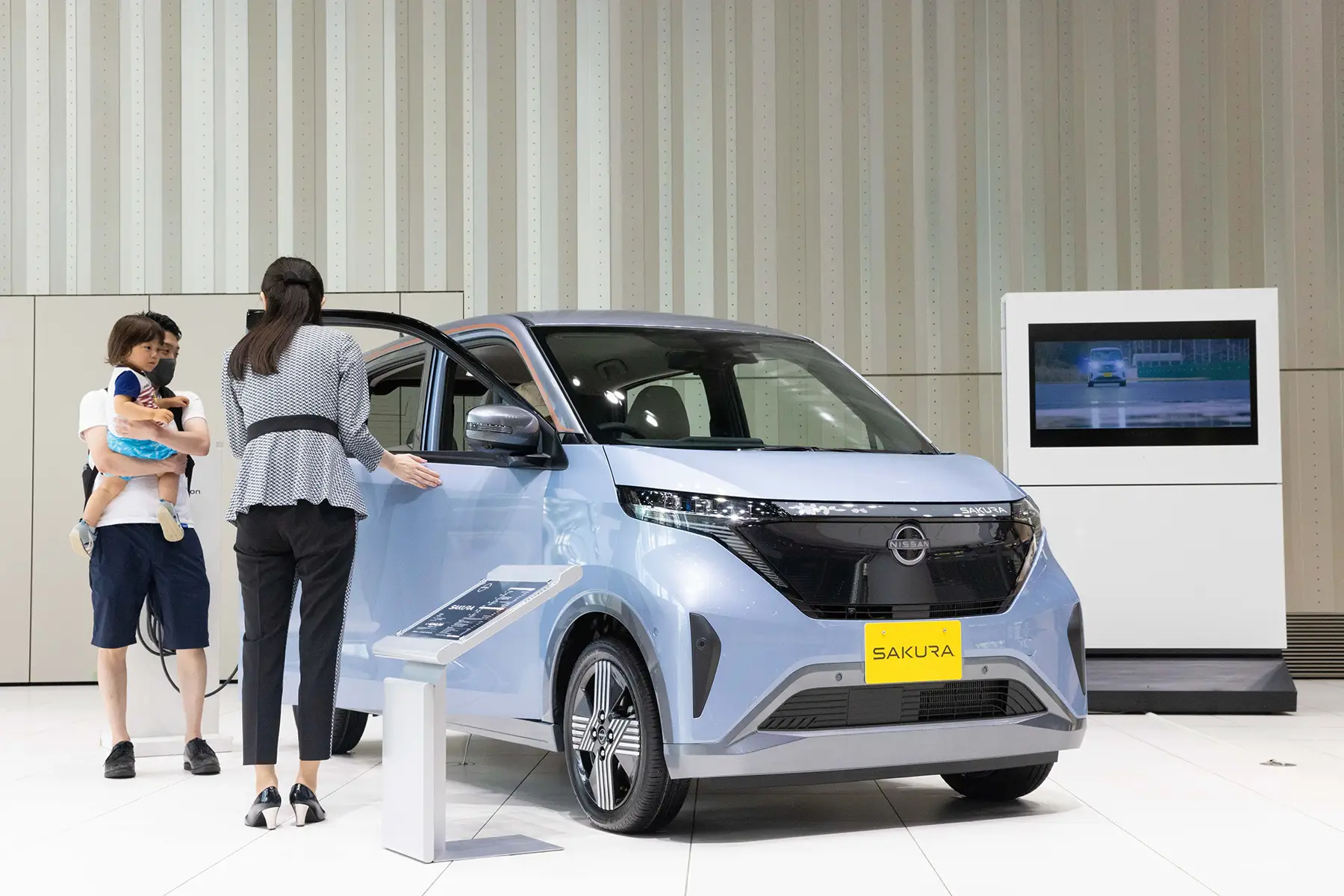
One thing to note about buying a car in Japan is that the price displayed on the car’s tags is just the price of the car plus consumption tax (消費税, shohi zei). They don’t take into account the various other taxes (税金, zeikin), insurance (保険, hoken), and registration fees that can rack up quite the bill.
Dealerships will usually offer payment plans or leases for a new car (新車, shinsha) purchase. Leasing may be a good option if you only intend to be in Japan for two or three years, as the agency handles much of the administrative work and maintenance. It also allows you to leave the country without having to organize the car sale yourself.
Meanwhile, buying upfront can be costly and requires you to deal with all the maintenance. Not to mention, you will need your own language skills or a translator to handle the process in Japanese (日本語, Nihon go).
You will need the following documents when buying a new car in Japan:
- A valid Japanese driving license (運転免許証, unten menkyo sho)
- A residence certificate (住民票, jumin hyo)
- Your registered name stamp (実印/ハンコ, jitsuin/hanko) and the certificate of seal registration (印鑑登録証明書, inkan toroku shomei sho)
- A car parking certificate (車庫証明書, shako shomei sho) for where you will park your car
- A loan or sufficient funds to pay upfront
Where in Japan to buy a new car
In Japan, buying a car in person is more common than buying one online. Your main options are to go directly to a brand dealership or visit a broker that carries several different brands.
Car dealerships
Dealerships are a good option if you already know what car brand you’d like. There’s no shortage of Japanese brand dealerships, such as Toyota and Lexus, and you’ll also find a few dealerships with international names.
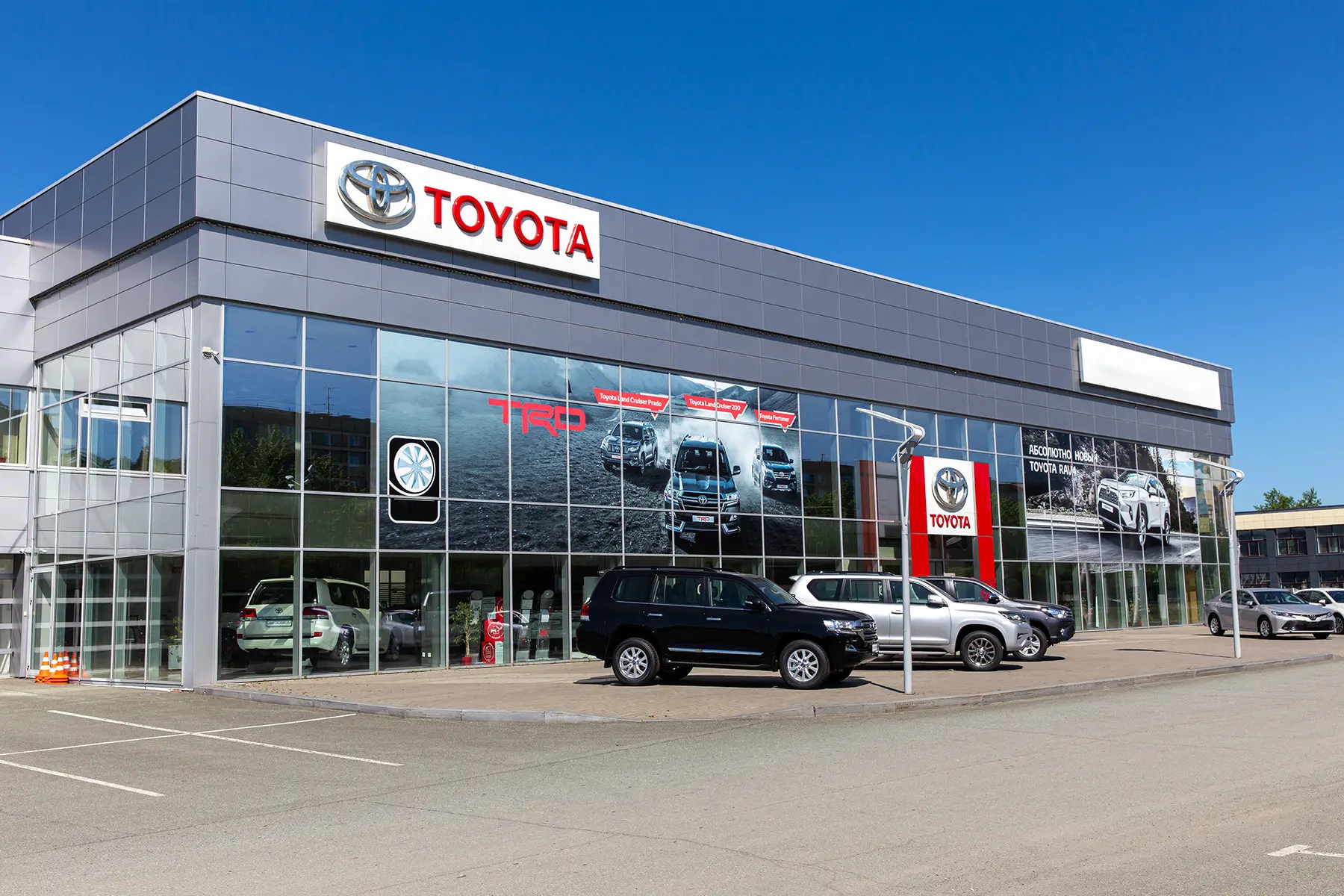
Not all dealerships allow test drives (試乗, shijo), but it is worth asking. Once you’ve decided, you can try to negotiate a better price before buying. At that point, you will need the documents outlined above, but the dealer can handle most of the registration and paperwork.
The easiest way to find brand dealerships is to go directly to the brand’s website and look for their directory. Bear in mind that most of these websites are in Japanese.
English-speaking car brokers
Some dealerships may have English-speaking staff, so it’s worth checking in advance to find a location that can offer you these services. These are primarily in Tokyo, so if you live elsewhere, you will have to register to receive a number plate for your area of residence.
Unlike a car dealership, car brokers are not necessarily tied to one brand and act as a middleman between buyer and seller.
Some English-speaking options are Asahi Motors, MickLay, and Euro Japan. Each offers leasing options, and Asahi Motors even offers long-term rentals.
Electric cars and hybrids in Japan
While electric vehicles (電気自動車, denki jidosha) are becoming more popular in Japan, they still make up a relatively small percentage of the overall market. In the fiscal year of 2022, just 2% of total car sales in Japan were for fully electric vehicles. Hybrid vehicles (ハイブリッド車, haiburiddo sha) are generally more popular.
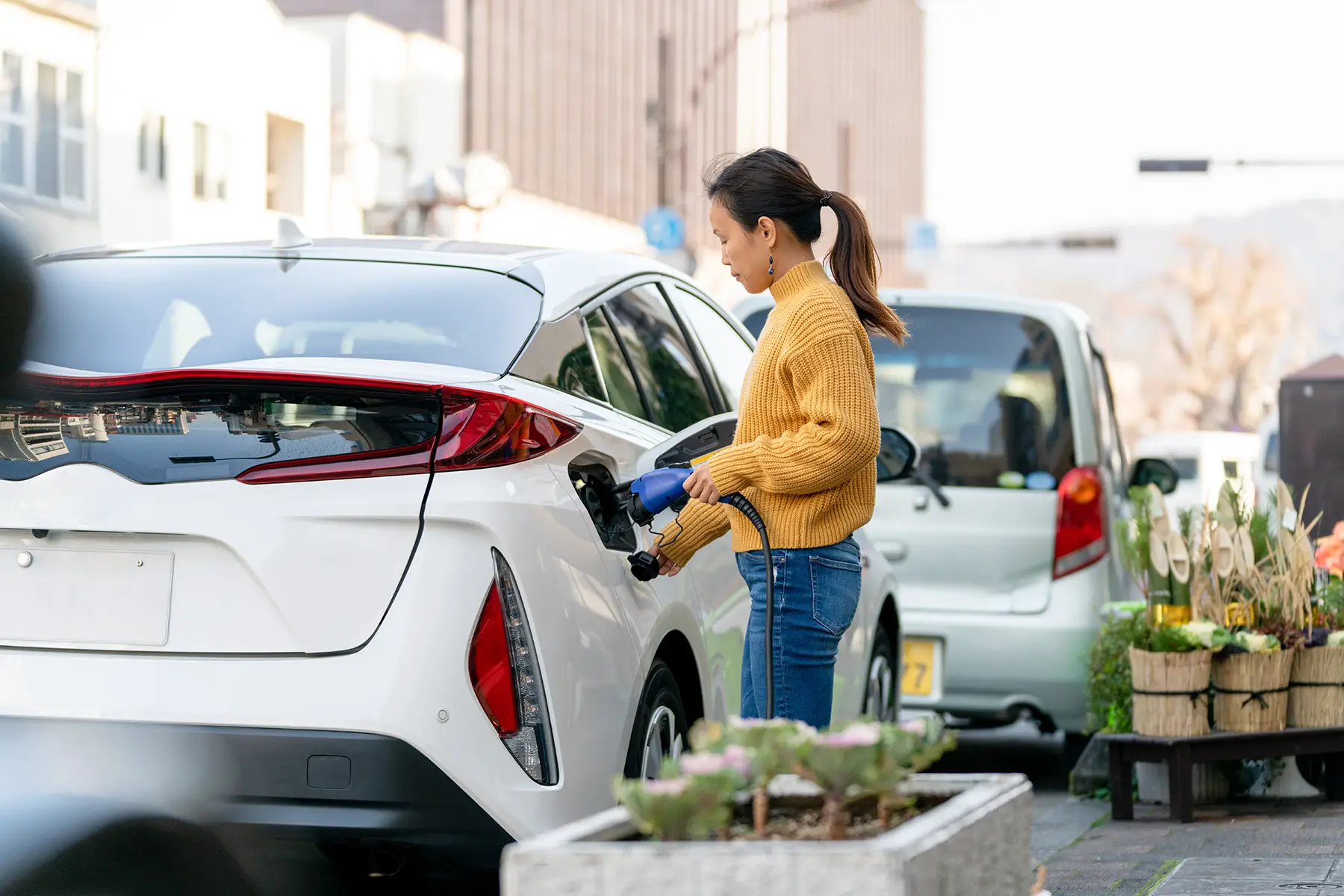
However, Japan is making concerted efforts to reduce its carbon emissions, with the ambitious goal of net zero emissions by 2050. It also aims to make all new cars emissions-free by 2035. This means that the government has added to its purchase incentives and subsidies for charging stations.
Incentives and drawbacks
Aside from feeling good about owning a more environmentally friendly vehicle, there are some other benefits to buying an electric car in Japan. For example, electric vehicles require less maintenance and fuel and are even eligible for subsidies and tax breaks.
The Japanese government has implemented incentives to encourage the use of clean energy. In recent years, these subsidies have come to match that of Europe and the U.S. The maximum available for fully electric vehicles is currently ¥850,000 and up to ¥550,000 for plug-in hybrid vehicles.
However, despite these incentives and encouragement, Japan had just 0.09 public chargers per EV/PHV in 2021. This is important to keep in mind, as you will have to research charging port options when traveling. Furthermore, electric cars usually cannot travel as far as non-electric vehicles.
Buying a used car in Japan
In Japan, there is a huge market for used items, and there is a tendency to take good care of them. This makes buying a used car in Japan an attractive option, as it will be cheaper than a new one but will likely be in good condition.
Used car dealerships
As with new vehicles, buying a second-hand car (中古車, chuko sha) from a physical store is the most popular option in Japan. Big Motor (ビッグモーター, Biggu Mota) is a decent used-car dealership with branches around the country.
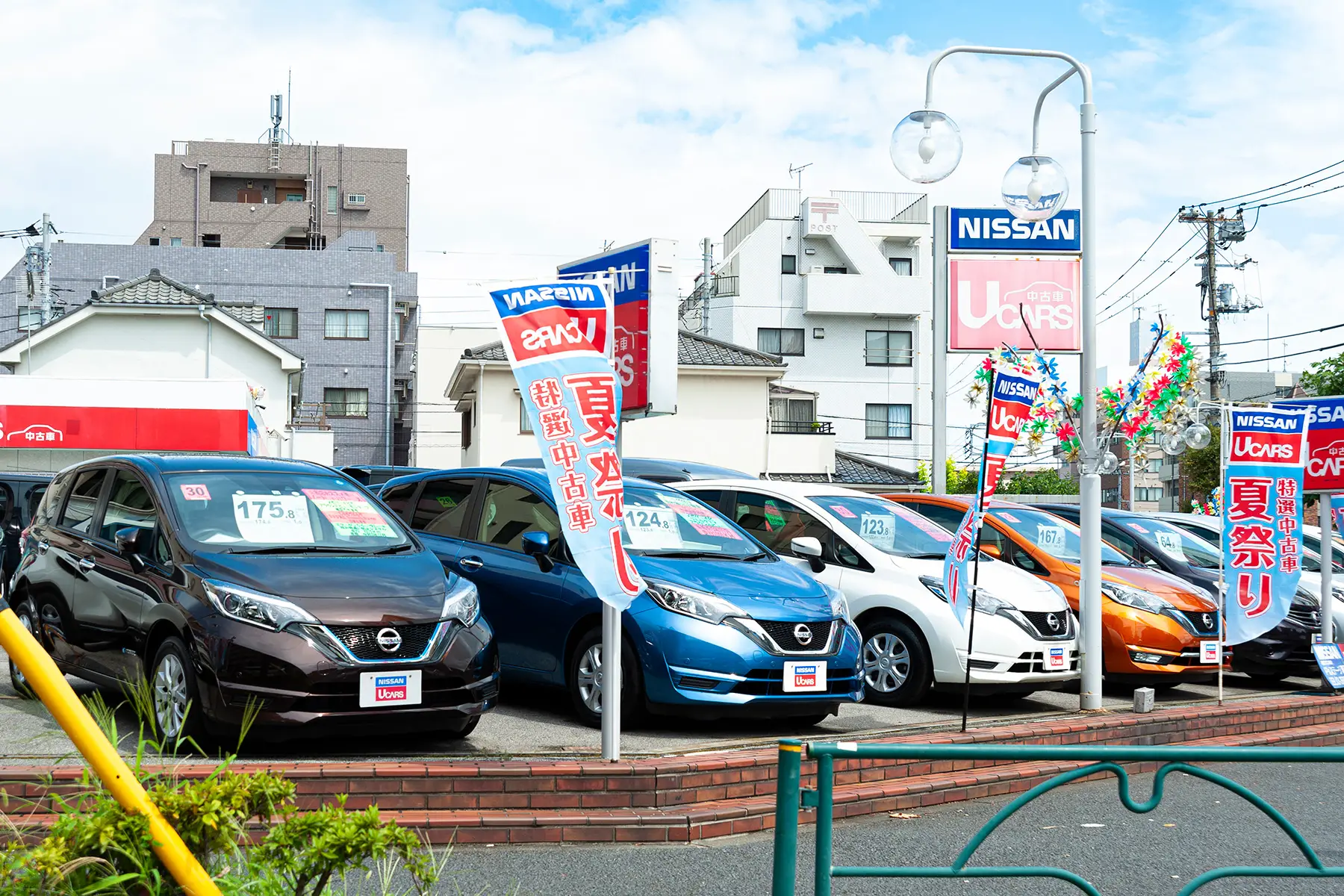
Many Japan-based brands also have a second-hand section on their official websites, such as Nissan’s used car page. This also goes for the English-speaking dealers outlined in the new car section.
Going to a dealership is the best option for peace of mind, as they will guide you through the registration and paperwork processes. They will also offer various payment plans, insurance options, and other support.
Buying a used car online
If you prefer to browse cars from the comfort of your own home, there are also several websites where you can buy used cars from around the country:
Buying a car from a private owner
It can be a little trickier to find second-hand cars for private sale in Japan, given the comprehensive selection available elsewhere.
However, if you would like to find a fellow expat or English speaker selling their car, the popular place to do so is on Facebook Marketplace or groups such as Japan used cars buy & sell.
You can also look at trade magazines and newspapers. Remember to exercise caution when buying privately and to ask for the relevant maintenance and vehicle inspection records.
Car registration and other paperwork in Japan
If you buy a new or used car in Japan, you must register your vehicle and transfer ownership. A dealership may do this for you.
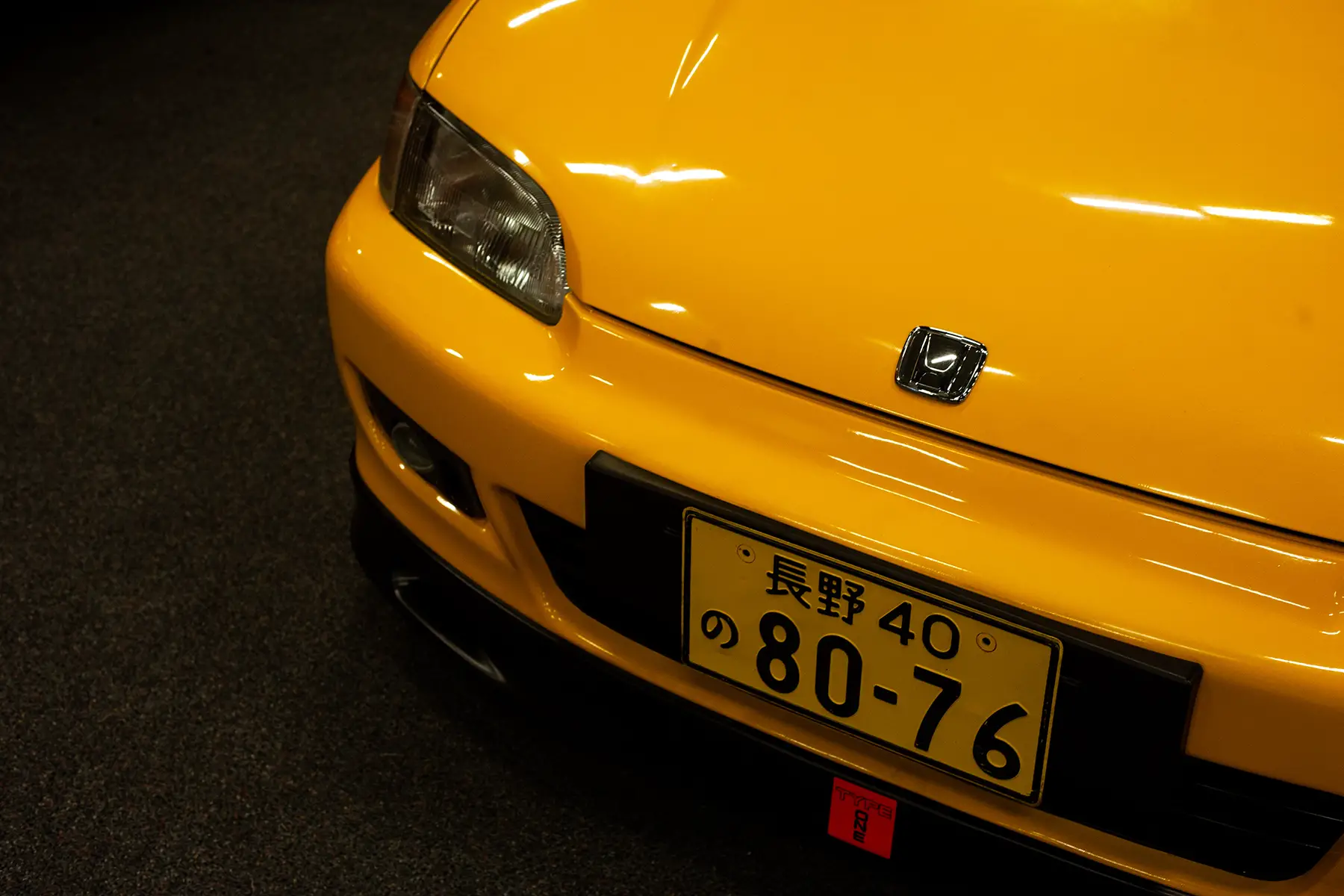
To register or transfer ownership, you will need the following:
- Bill of sale with the seller’s name stamp
- Car parking certificate and map of the parking space
- Proof of vehicle tax (自動車税, jidosha zei) payment
- Registered name stamp and the certificate of seal registration
- Valid driving license
- Vehicle inspection certificate (車検証, shaken sho)
Many of these will require separate processes, such as the car parking certificate, which you will need to apply for at the police station.
You may also need to buy new number plates (ナンバープレート, namba pureto) if the car was originally registered in a different prefecture or if you move to a new one.
Importing a car into Japan
Importing a private vehicle into Japan can be a costly and involved process, so it is not particularly common. However, if you want to import your vehicle, you can keep it in Japan tax-free (免税, menzei) for up to a year.
Remember that Japan drives on the left (左側通行, hidarigawa tsuko), so if you’re moving from a country that drives on the right, your steering wheel will be on the less convenient side of the car.

To import a car, you need a Carnet de Passages en Douane (CPD) in the country of origin, which you submit to the JAF. This is like a passport for your car and allows you to take it abroad.
The car must then go through customs clearance procedures. Upon arrival in Japan, it must then undergo an inspection and registration at a branch of the Ministry of Land, Infrastructure, Transport and Tourism (MLIT) (国土交通省, Kokudo Kotsu Sho). At this point, your car may require adaptations to comply with Japanese standards.
Finally, the car will require a Japanese number plate, and you must register a parking space as outlined above.
A shipping company can handle many of the above procedures for you.
Selling a car in Japan
When you move out of Japan or no longer have a use for your car, there are three main options: sell your car privately, to a dealership, or scrap (廃車, haisha) it.
To find out the estimated value of your car before selling, you can use the CarNext calculator (in Japanese) to get an idea of its market value. You can then take it to a dealership like Big Motor, or use one of the online marketplaces:
You may find it easier to visit an English-speaking company in Tokyo such as Asahi Motors, MickLay, or Euro Japan.
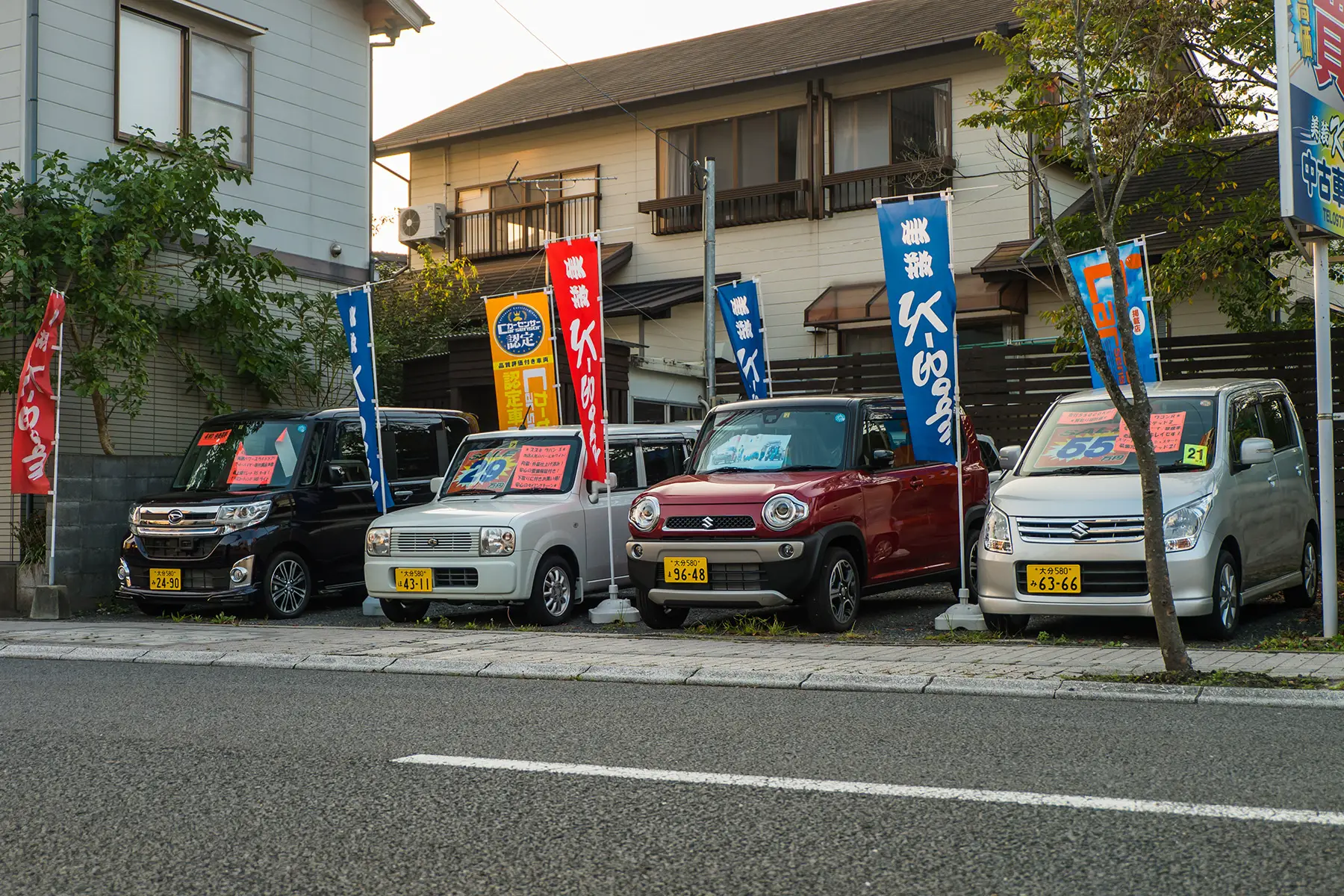
In any case, you must prepare various documents and complete procedures to transfer or relinquish ownership. They will vary by what type of vehicle you intend to sell. In most cases, the seller will require the following:
- Deed of transfer (譲渡証明書, joto shomei sho – PDF in Japanese)
- Registered name stamp
- Tax certificate (納税証明書, nozei shomei sho)
- Vehicle inspection certificate
You or the agency then carry out procedures at the local Transport Bureau branch of MLIT. If you are going through a dealership or company, they will guide you through the process or carry it out for you.
Even if you are selling your car to a friend or acquaintance, going through a company or dealership may be a good idea to avoid complications.
Equipment your car needs to have in Japan
By law in Japan, you need to have the following prepared in your car:
- Driving license
- Safety flare (発炎筒, hatsuen to): for use in case of emergencies
- Vehicle inspection certificate
- Warning triangle (三角表示板, sankaku hyoji ban): you must place this on the road in a visible location in the event of a breakdown
It’s also recommended to have the following:
- Fire extinguisher (消火器, shokaki)
- First-aid kit (救急セット, kyukyu setto)
- Spare tire (スペアタイヤ, supea taiya)
- Tool kit (工具セット, kogu setto)
Useful resources
- JAF – the Japan Automobile Federation official website
- Japan Customs – provides concise information about importing and exporting goods in Japan
- Tokyo Metropolitan Police Department – provides useful information about obtaining a driver’s license in the country






